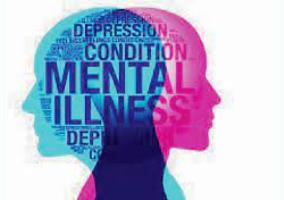The Nigerian Correctional Service (NCoS) has revealed a serious mental health problem in its prisons. Right now, 8,246 inmates are suffering from mental illnesses.
This information was shared during a public hearing by a panel investigating corruption, abuse of power, torture, and other poor treatment within the NCoS. The hearing was held in Abuja on Tuesday.
Dr. Glory Essien, who is in charge of medical services at the NCoS, spoke at the event. She explained how prison life can harm people’s mental health.
She said, “We have over 8,000 inmates with mental health problems. As soon as a person enters prison, they feel their freedom is gone. That moment alone can cause mental stress. Some inmates start acting strangely almost immediately.”
Dr. Essien said the prison system uses trained inmates called “leaders” to help identify others who may be struggling mentally.
“These leaders are trained to look out for warning signs—like if someone isn’t eating or talking—and then report it to the staff so we can step in early,” she added.
But even with this system, the number of mental health cases is too high compared to the available resources.
“In some prisons, one doctor, nurse, or psychologist has to care for hundreds of inmates. That’s not possible without help from trained inmate-leaders,” she said.
She also spoke about the challenges of treating mental illness in prison.
“Mental illness is long-term. It’s not like malaria that you treat quickly. We also have problems like transport issues, not enough medicine, and too few staff.”
She said, “We’re not working in perfect conditions, but we are doing our best with the little we have.”
Mohammed Bashir, who oversees pharmaceutical services in the prisons, also spoke. He talked about the lack of funding and resources for mental health care.
He said the government is trying to help, and money has been set aside, but it’s not enough.
He also mentioned that there are 81,122 inmates across 256 prisons, and only about 2.3% of them are women.
He gave an example of how expensive basic items are: sanitary pads alone cost over 4 million naira each month.
On mental health, he said the NCoS has set up a unit to focus on psychological care and works with psychiatric consultants who visit certain prisons.
However, he admitted that due to low funding and too few workers, medicines often run out within weeks.
Dr. Magdalene Ajani, the Permanent Secretary of the Ministry of Interior, said the system needs urgent help and long-term changes.
She asked the Nigerian Medical Association and drug companies to support prisons by helping with mental health services.
Using a Bible reference, she said, “Please come to Macedonia and help us,” highlighting the need for help in prisons outside Abuja and Lagos.
She also spoke about how mental health professionals are mostly found in big cities and rarely in rural areas. “Even just two professionals per state would make a difference,” she said.
Dr. Ajani also talked about the need for partnerships with private companies to supply medicine as part of their corporate social responsibility (CSR).
She ended with a call for strong leadership and mentorship, saying, “Let’s not just stay in offices. Take action now, and train young people to continue the work we are doing.”


